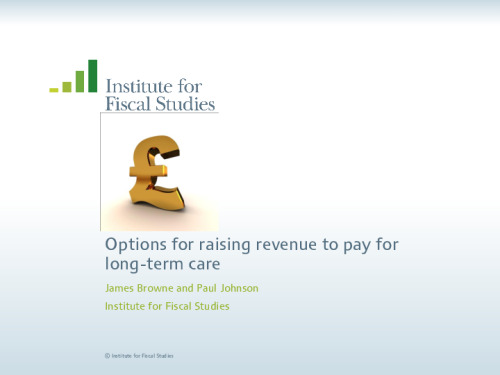<p><p><p>The Dilnot Commission on long-term care proposed that the state should pay a greater proportion of long-term care costs for a larger number of people. Its central proposal would involve public spending increasing by £1.7 billion or 0.14% of GDP in the short term, rising to 0.22% of GDP by 2025. This would effectively provide greater social insurance against the risk of high care costs, and is likely to be welfare-improving as individuals are risk-averse. The main beneficiaries would be wealthier pensioners who would no longer face the risk of having to use their accumulated assets to pay for the costs of long-term care. The Dilnot Commission therefore suggested that if a specific tax rise or benefit cut is introduced to pay for this increased spending, it should be focused on those better-off pensioners who would benefit from the commission's proposals. In work funded by the Nuffield Foundation, the IFS was asked to consider various options for raising revenue to pay for the Dilnot Commission's proposals. This presentation was given at a seminar organised by the Nuffield Foundation to discuss the funding of social care reform on 28th November 2011.</p></p></p>











